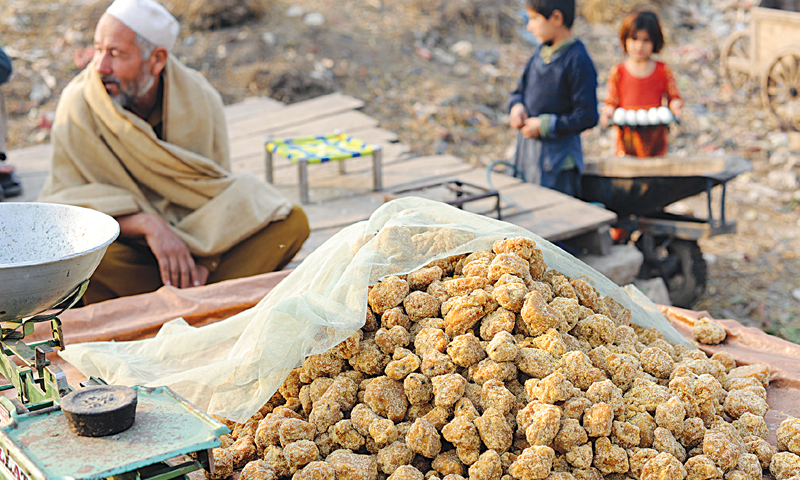MIRWAIS Gul, 21, whose family belongs to the Qarabagh district in Kabul, Afghanistan, was born and raised in Pakistan. Now living in I-11 kutchi basti near Pir Wadhai Adda, Islamabad, he displays his identity card, which states he is an Afghan citizen.
“This card has become very important now,” he says. “Police raided our basti about a week ago and took away all Afghans whose cards had expired or who had no proof of being registered Afghan citizens.”
Gul speaks fluent Pushto and Urdu. Conversing with Pathans living close to him, it is hard to determine he is Afghan. “I feel very Pakistani, but the police have recently been reminding me I’m Afghan,” he says. “When they came here looking for Afghan men a few days ago, they took about 150 of them.”
Take a look: Afghan boy’s dream dashed in Pakistan
After the ruthless Peshawar school massacre on Dec 16 that killed some 150 people, almost all of them children, the government has accelerated its efforts to put in place stringent security checks.
Even as media reports suggest the attack could have been coordinated by the banned Tehreek-i-Taliban Pakistan from its base in Afghanistan, the government is instilling fear among many Afghans by raiding their neighbourhoods in quick succession. On Dec 23, the police and Rangers carried out a joint operation in Shehzad Town, Islamabad, and arrested an alleged Afghan terrorist along with eight other suspects.
“People are fearful of raids here as those detained are kept in prison for two to three days,” says Gul. “Although they are usually released soon after interrogation, their families are left concerned.”
Walking on the rutted, muddy path of the slum, I approach a group of four men seated on a heap of bricks and ask them to guide me to the Afghans in the neighbourhood. Immediately, they shake their heads in disapproval to say they would not facilitate me. “We have irked our Afghan brothers previously by directing people to them and won’t do it now,” says one of the men.
According to defence analyst Imtiaz Gul, who is executive director at the Islamabad-based think tank Centre for Research and Security Studies, “Raiding these slums where Afghans live is a knee-jerk reaction by the police. It is a futile exercise as when we talk of Afghan refugees, we are trying to single out Afghans as the single largest source of instability in the country.”
He says that even if Afghans are responsible in some way for the problem, their role is small. “Our jails are stuffed with terrorists and criminals who are not all Afghans. Through these raids, we are trying to pass on the responsibility of our failures to the Afghans. It is a short-sighted approach. We are making Afghans scapegoats.”
According to newspaper reports, in view of the country’s security concerns, since March 2012, Pakistan has banned the extension of visas to all foreigners, including Afghans. Refugees from Afghanistan first started migrating to Pakistan during the Russian invasion of Afghanistan in the late 1970s. Now, according to UNHCR, the UN refugee agency, there are a total of 1.6 million registered Afghans in Pakistan, while Pakistani officials claim there are 2.7 million registered and illegal Afghans.
Haider Gul, 58, came here 18 years ago from Jalalabad with his wife. He now has 10 children and sells vegetables in the mandi, opposite the I-11 basti where he now resides. “A few days ago, the army came and gathered a lot of Afghans but I don’t get frightened as this has happened many times in front of me.”
His nephew, Bakhtiar Sikander, 15, along with his four friends who have gathered around us, brazenly acknowledges his Afghan roots. “I tell everyone I’m Afghan, but if the police ever come here we say we are Pathan,” he says as his friends burst into laughter.
A generation of Afghans has been born, raised and many among them buried in Pakistan. Many like Mirwais Gul, have never visited Afghanistan. Now with the government’s repatriation plan for Afghans, they fear being dislocated from their homes. They are concerned about the police’s queries directed at their suspected involvement in crimes they claim not to have any links to. Many of the residents of this locality are just middle-aged men selling corn, jaggery and vegetables in the mandi. Repatriation is a sensitive issue and will need to be handled with care by the Afghan and Pakistani governments.
Published in Dawn, December 30th, 2014













































